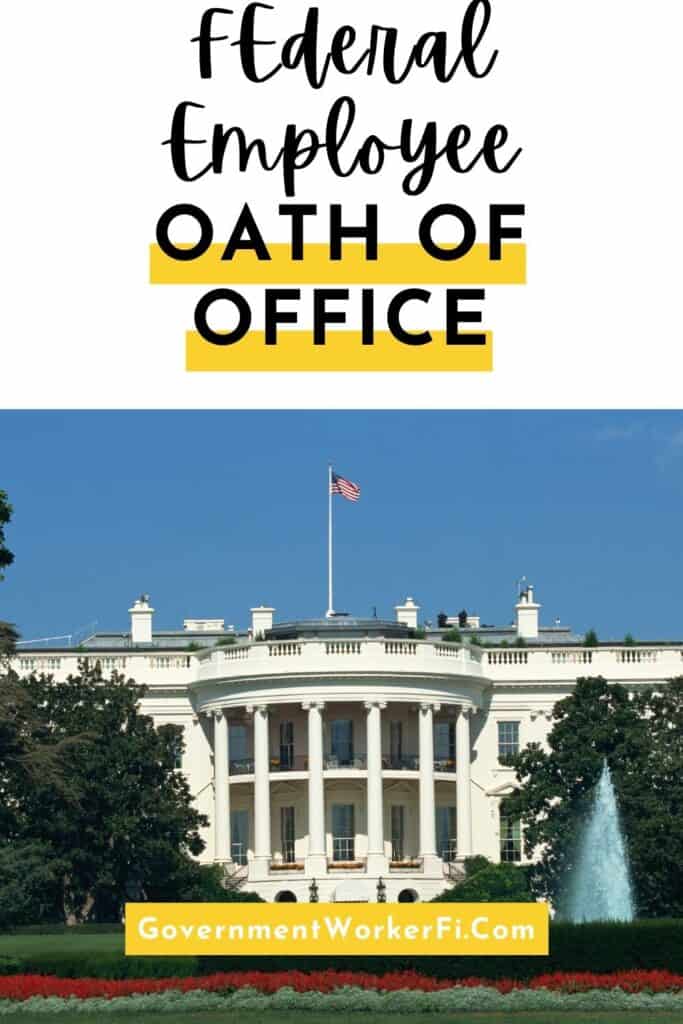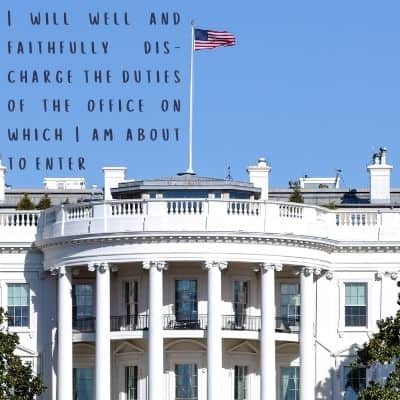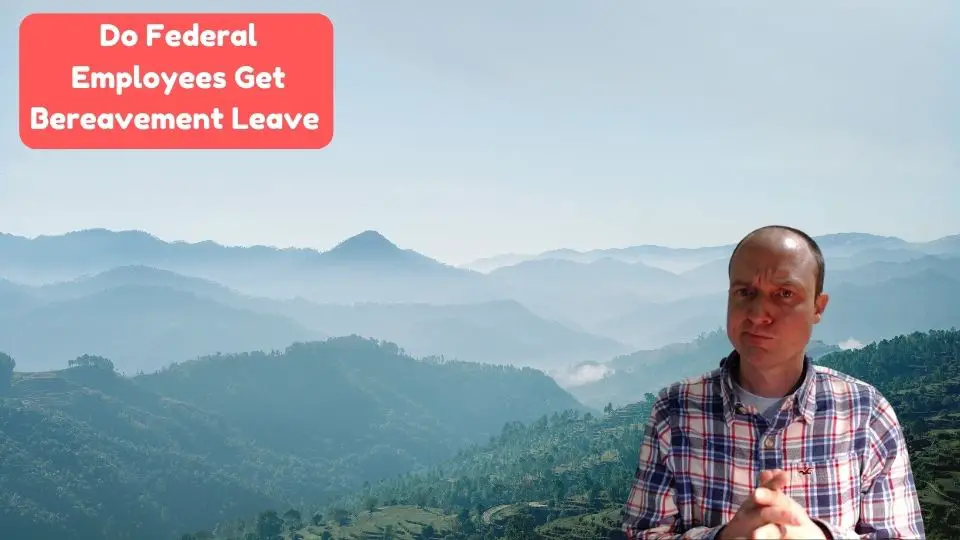As a supervisor, I have administered the oath of office to federal employees on their first day in the office. I always find this part of the onboarding process to be a little bit awkward.
“Wait- I need to sign an oath?”
In our current 2020, free-agent gig economy, signing any sort of promise seems like an odd preposition. (Don’t worry, you can still keep your side hustle if you work for the federal government).
If you’re thinking about joining the ranks of federal employees who have already signed the oath of office, I’ll walk you through what it says and how the process works.
And if you’re a long time federal employee like me, hopefully this help you reminisce about the day you signed your oath of office for federal employees.
Get Gov Worker’s top 4 tips for federal employees!Table of Contents
- My oath of office for federal employees story
- Where does the oath of office for federal employees come from?
- Modern Oath of Office for Federal Employees
- Update- The Oath of Office and the January 6th Insurrection
- Where can I find a copy of the oath of office for federal employees?
- How do atheists take the oath of the office?
- What is the penalty for violating the Oath of Office?
Please do not confuse my personal blog for financial advice, tax advice or an official position of the U.S. Government. This post may contain affiliate links. If you make a purchase after clicking on a link, I get a small percentage of the sale at no additional cost to you.
My oath of office for federal employees story
I am embarrassed to say that for a long time I forgot that I took the oath of office for federal employees. I started working for the government through a student employment program as a wage grade employee (WG-2 laborer). People- I mowed lawns. I thought I was going to work for a summer, work my 40 hour weeks with lunch breaks, and then go off to college and never see this place again.
The amount of paperwork I needed to fill out for job blew my 18 year old mind. I kind of sort of remember filling out an “oath of office” and thought it was ridiculous. Like- was I going to sabotage the US Government by cutting the grass too short? Anyway- I signed all of that stuff as fast as I could so I could start doing something.
20 years and five government shutdowns later, and I really regret not taking the federal employees’ oath of office more seriously. I take my federal job very seriously now. I feel like I do make a difference in our Country and I want to faithfully execute this oath. And next to my marriage vows, this was probably the most important promise I ever made. So now when I administer the oath of office to new federal employees, I try to silently take it a second time in my heart.
Where does the oath of office for federal employees come from?
The legal precedent for the oath of office comes from Article VI of the Constitution. Since I’m not a constitutional scholar, I enjoyed reading this and trying to think about what our founders were thinking of as they drafted this. Article VI covers three topics very succinctly- (1) who is responsible for debt, (2) the Constitution is important, and (3) government agents need to swear an oath to protect this Constitution that we said was important.
I was struck by how Article VI starts out by talking about who would assume debts our country owed once the states became united. After sorting out the most important issues ($$$), Article VI then states that the Constitution is like, super important. Article VI states, “This Constitution…, shall be the supreme Law of the Land “. And finally, Article VI states
The Senators and Representatives before mentioned, and the Members of the several State Legislatures, and all executive and judicial Officers, both of the United States and of the several States, shall be bound by Oath or Affirmation, to support this Constitution; but no religious Test shall ever be required as a Qualification to any Office or public Trust under the United States. Title VI of the US Constitution
I imagine the political tensions as the founders sat around a table trying to come up with deals to start our democracy. They were trying to come up with a framework for the democracy and wanted to make sure that everyone in charge of the democracy would not try to undermine its most important framework (the constitution) through a civil war or other means.
I wonder if they could have imagined me taking the oath 200 years later just to pull weeds outside of a government building. What would they have thought?
Modern Oath of Office for Federal Employees
Our modern day oath of office comes from USC 3331, which falls under Title 5 of the USC. (For those of you who read my post on federal employee lunch break rules, Title 5 should sound familiar. Title 5 of the USC covers all of the laws that Congress has passed related to federal employment.
According to Wikipedia, the modern oath of office for government employees was developed during the Civil War and was used to test loyalties.
An individual, except the President, elected or appointed to an office of honor or profit in the civil service or uniformed services, shall take the following oath: “I, { name }, do solemnly swear (or affirm) that I will support and defend the Constitution of the United States against all enemies, foreign and domestic; that I will bear true faith and allegiance to the same; that I take this obligation freely, without any mental reservation or purpose of evasion; and that I will well and faithfully discharge the duties of the office on which I am about to enter. So help me God.” This section does not affect other oaths required by law. 5 USC 3331
Who takes the oath
I found it fascinating that the oath of office for federal employees applies to all people involved with the federal government except for the President. Supreme Court justices, members of the House of Representatives the Senate, and even the Vice President all take the same oath that I took as a lowly 18 year old laborer. Furthermore, the civilian employees and government officials take the same oath prescribed by the constitution as the military. No more and no less.
I do solemnly swear (or affirm)
The first part is that indicating that we really intend to take this seriously. I think the parenthetical is to provide an accommodation for people who are not religious and therefore do not believe in swearing an oath. This is ironic because the last part of the oath refers to “God”. But at least the first clause contains inclusive language.
I will support and defend the Constitution
This is the meat of the oath. That you will support the Constitution and defend the Constitution. How do you support and defend the Constitution? Well, Title VI says that the Constitution is the Root of Law in this country. So at a bare minimum you need to obey the law (which includes avoiding illegal drugs as a federal employee).
Beyond that, you need to make sure that you don’t allow people to destroy or subvert the constitution. I would say that 99% of federal employees probably can’t do anything about this. As a WG-2 laborer, I wasn’t making policy decisions that could conflict with the constitution. However, SES employees, judicial employees, and legislators should think seriously about this.
Against all enemies, foreign and domestic
Even our founders thought that threats to the Constitution could come from within their own government. Again, most federal employees can’t affect government policy. They should however be cognizant of their oath. Ordinary employees like you and I might be able to detect odd behavior from a coworker that might involve foreign espionage or foreign appropriation of intellectual property. And there have been a long list of whistleblowers who have put themselves in uncomfortable situations to raise awareness of unlawful behavior within government.
I will bear true faith
The remainder of the oath doesn’t really mean a whole lot to me, other than the fact that we should be taking this seriously. Also- I guess we must swear to God at the end of it. Which seems a little bit odd in our very secular 2020. Furthermore, in my federal experience, no one wants to have any sort of religious discussions because we are all trying to provide a separation of church and state.
Update- The Oath of Office and the January 6th Insurrection
When I wrote this post several years ago, I wasn’t sure how an average employee like you or I might support and defend the constitution. It seemed kind of arbitrary. However, on January 6th, 2021, there was an attack on the Capitol building that sought to disrupt a Congressional Proceeding.
Ironically, many of the people who entered the Capitol unlawfully that day were former government and military members who took the same Oath of Office that I just described above. And without the brave actions of some government employees, our country may look very different today.
Where can I find a copy of the oath of office for federal employees?
Supervisors administer the oath of office by watching you sign the SF-61 form and submitting it to human capital management. (For those of you who don’t speak government, SF= standard form). Here is a link to the SF-61 form. (In case you want to read up on it before the first day of work).
How do atheists take the oath of the office?
While I’ve had several discussions with employees as they signed the oath of office for federal employees, no one has brought up the “G” word before. Unlike the photo-opportunity swearing in that Congress has, I’ve never had an employee recite the oath out loud or hold a Bible (or Torah or Quran) while doing so. The oath does involve swearing an oath to a god though.
Military members, who must verbally state the oath, can drop the “so help me God” clause. However, the civilian SF-61 simply asks you to sign the entire text. If this clause is a reason you would not sign the SF-61, then I would seek legal council. You may be able to strike this section from the SF-61 when you sign it. However, I’m not sure what exactly would happen if you tried that.
What is the penalty for violating the Oath of Office?
There are pretty serious legal ramifications for violating the federal employees oath of office. The government can fine or imprison you (see 18 USC 1918)! While 18 USC 1918 sets the prison term at “a year and a day”. However, that part of the code does not state how large of a fine can be levied.
Of course, if you violated the oath of office, you most likely committed another crime as well (espionage, theft, treason, sedition, etc.). I’m assuming that those crimes would have much longer prison terms.
Get Gov Worker’s top 4 tips for federal employees!







